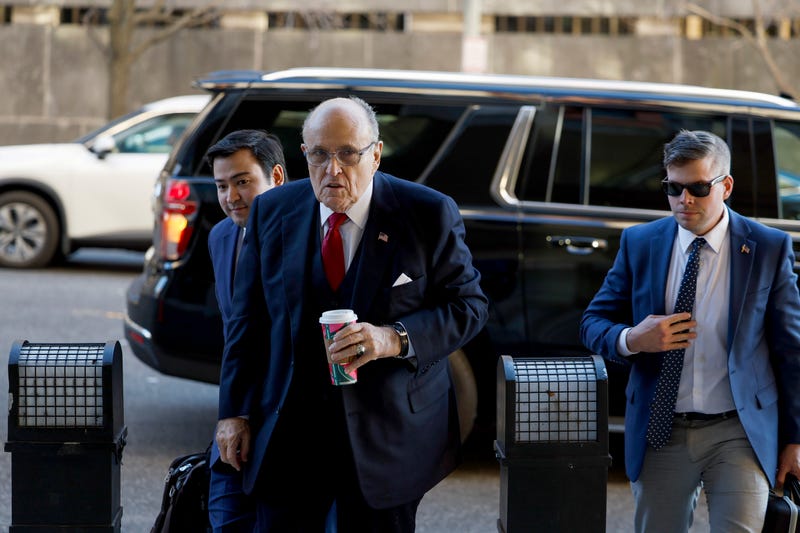
NEW YORK (BLOOMBERG) -- Rudolph Giuliani, the former mayor of New York who led efforts to overturn the 2020 presidential election, has filed for bankruptcy, swamped by legal bills stemming from his discredited campaign to keep Donald Trump in power.
Giuliani filed papers seeking protection from creditors in New York, listing debts of as much as $500 million and assets of up to $10 million. In December, he was ordered to pay $148 million to two 2020 Georgia election workers after promoting conspiracy theories about them.
He’s been defending himself in multiple courtrooms on matters ranging from criminal charges to civil defamation, running up millions of dollars in fees and expenses. As the costs mounted, Giuliani admitted in a civil case in early August that he was “having financial difficulties” and he asked a judge to put off some payments.
Legal woes for the former U.S. prosecutor include an indictment in Georgia on charges of racketeering and conspiracy. He’s pleaded not guilty. Giuliani also was sued for defamation by voting software companies Dominion Voting Systems Inc. and Smartmatic Corp. over his false claims of election fraud.
Along the way, he fell behind on hundreds of thousands of dollars owed to a firm that handles records that he needs in court. In September, the law firm that represented Giuliani sued him for $1.4 million in unpaid fees.
Giuliani has complained he doesn’t have the money to defend himself in all the cases, and Trump hosted a $100,000 per person fundraiser in September at his golf club in Bedminster, New Jersey, to help the former mayor pay his legal bills.
A three-bedroom apartment on Manhattan’s Upper East Side Giuliani owns was put up for sale for $6.5 million in July.
Earlier in his career, Giuliani used federal anti-racketeering law to lock up mob bosses and police Wall Street insider trading when he served as US Attorney for the Southern District of New York in the 1980s. It helped vault him to the mayor’s office, and his leadership after the Sept. 11, 2001, terrorist attacks won global acclaim. He sought the Republican presidential nomination himself in 2008.
He later joined Trump’s legal team and pushed discredited conspiracy theories in an attempt to overturn the 2020 presidential election. Legal bills piled up, and his efforts to pay were crimped when his law license was suspended in New York State and in the District of Columbia. He subsequently faced disbarment proceedings.
